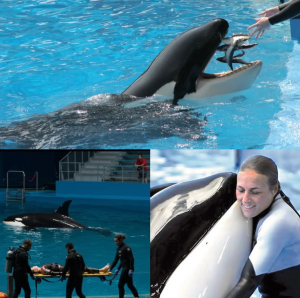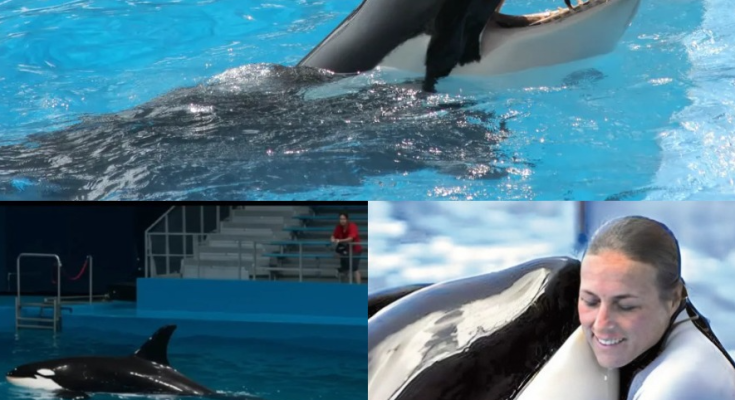The Last Wave
No one expected the final blow in the middle of the wave to be the moment of parting.
The day had begun like every other competition day — the familiar hum of the crowd, the sharp smell of seawater mixed with sunscreen, the chatter of vendors hawking souvenirs along the pier. It was the annual Ocean Crest Invitational, a hybrid event somewhere between a surfing championship and a deep-water endurance challenge, and it always drew an audience.
The athletes, each tethered to a board built to withstand towering swells, paddled out to the starting buoys. Among them was the defending champion, simply known as Orcus. That wasn’t his real name — just the moniker whispered by fans and muttered with unease by his rivals. He was a broad-shouldered figure with storm-gray eyes, a man who moved in the water as if he’d been carved from it. Orcus had won the last three competitions, but his reputation wasn’t built solely on skill. Rumors clung to him — about broken partnerships, sudden rival retirements, and the fact that no one seemed to know where he went in the off-season.
And then there was Coach Moran. He wasn’t Orcus’s official trainer, not anymore, but the bond between them had once been as tight as a knot in a rope. Moran had brought Orcus from obscurity into the spotlight, shaping him into the waterborne legend he was. But somewhere between the wins and the sponsorship deals, that relationship had fractured. Still, on this day, Moran had shown up at the shoreline, standing with arms crossed, watching the heat unfold.
The competition was fierce but predictable — until the fifth round. The swells rose higher than forecasted, curling into walls of green and white, the kind of waves that could carry a champion into history or smash him into obscurity. The competitors pushed themselves, slicing through the breakers, disappearing into the foaming tunnels.
And then came the wave.
It rose out of the horizon like a moving cliff, its lip curling forward, sunlight turning its crest into molten glass. Moran, waist-deep in the shallows, cupped his hands and yelled something — no one onshore caught the words over the roar of the ocean. Orcus was already paddling toward it, each stroke deep and deliberate, while others hesitated.
The crowd gasped as Moran suddenly plunged into the water. He wasn’t competing — he had no board, no safety tether. He swam hard, straight into the path of the oncoming swell. The moment he reached the base of the wave, something happened. Witnesses described it differently — some swore they saw Orcus’s board whip sideways, cutting toward Moran. Others insisted the two men collided naturally, thrown together by the turbulence. But everyone agreed on one thing: the final blow was sudden, sharp, and deliberate.
The water exploded into spray. Two heads surfaced for an instant — then only one.
Orcus emerged, gasping, riding the remainder of the wave in a perfect, balanced stance. He cut across the foam with surgical precision, finishing the ride in front of the judges’ platform. The crowd roared — but it was a confused roar, an applause tangled with unease. Because even as Orcus stood dripping on the sand, Moran was nowhere to be seen.
At first, people thought he’d simply been caught in the break and would surface farther downshore. Safety divers slipped into the water, scanning beneath the churning whitewater. Minutes stretched on. The announcer’s voice cracked over the loudspeakers, urging calm. The tide continued to surge, but Moran did not return.
That’s when people began to notice something strange. Orcus remained in the circle — the roped-off competitor’s area in the water — long after the heat had ended. His head turned, scanning the horizon, but he made no move toward the search crews. He wasn’t helping, wasn’t even pretending to look worried. He just floated there, upright on his board, as if keeping watch over a spot no one else could see.
Or perhaps, as some murmured later, he was guarding it.
The officials called off the remainder of the competition. The water rescue teams widened their search. Orcus finally paddled to shore, moving slowly, his eyes unreadable. Reporters surged forward, microphones bristling like spears, but he brushed past without a word, heading straight to the competitor’s tent.
The speculation began almost immediately. Some claimed Moran had been ill and shouldn’t have been in the water at all. Others hinted at an argument — an unfinished business between coach and champion. A handful whispered the darkest theory: that Orcus knew exactly where Moran had gone under, and exactly why he wasn’t coming back.
In the days that followed, the story only grew stranger. The Coast Guard searched for three full days but found nothing — no body, no gear, no trace. The weather had been rough, but not enough to swallow a man whole without leaving debris. When they questioned Orcus, his answers were measured, almost mechanical.
“He was in the wrong place at the wrong time.”
“I don’t know what happened after the wave broke.”
“I wish I could tell you more.”
Yet those who had been close enough to see his face that day swore his expression in the circle wasn’t shock or fear — it was anticipation. As if he had been waiting for a moment that had finally arrived.
Old rivalries were dredged up in the press. Articles rehashed their falling-out years earlier: Moran accused Orcus of arrogance, of abandoning the discipline that had made him great. Orcus, in turn, accused Moran of holding him back, of trying to control his career. When Moran retired from coaching, many assumed they’d never cross paths again. Yet here they were, on the same stretch of ocean, for the first and last time in years.
And then there was the ocean itself — the silent accomplice in countless disappearances. Local fishermen had their own theories. Some swore that spot in the break was cursed, a deep-water pocket where the current spun like a hidden whirlpool. Others believed Moran had been pulled into a cave along the reef, a place only the most skilled — or reckless — divers could reach.
But there were also the older legends. The name “Orcus” had meaning, after all. In Roman mythology, Orcus was a god of the underworld, a keeper of oaths, and a punisher of those who broke them. Whether the man on the board had chosen the name for intimidation or as a private joke, no one could say. Yet it lingered in people’s minds, tying the mystery to something ancient and uneasy.
Weeks passed, and the ocean kept its secrets. Orcus returned to training, already eyeing the next competition, as if nothing had happened. But in every coastal town where the story spread, people spoke of that day with a certain caution — not just about the wave, or the disappearance, but about the way Orcus had floated in the competitor’s circle, silent, still, and watchful.
As if he had been waiting for something to surface.
Or perhaps, waiting to make sure it never would.


